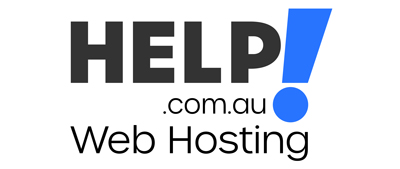FirstPageResults
Top Contributor
Pred is one of the founding partners of Fat Zebra. They specialize in making online payments simple!
Here is a brief summary of what’s involved in setting up a facility.
If you have any questions or comments, please feel free to post.
------------------------------------------------------------
Internet Merchant Facilities
Hi All,
I have recently received a lot of requests from users wanting to understand what’s involved with setting up an Internet Merchant Facility –
and what are the costs. There seems to be very little information on the forums about this so we thought we should fill in some gaps.
Firstly, it is important to understand what an Internet Merchant Facility is and when is it required.
The application process for an IMF will vary from bank to bank, however will always allow the bank to determine the risk involved.
Generally speaking, merchants who accept payment after receipt of goods will be lower risk than those who charge in advance. Industry code
will also add risk, as will trading history and anticipated transaction volumes.
So what fees can you expect?
It’s safe to say that most banks will charge you an establishment fee. This is most likely to be anywhere between $99 - $200.
We then have the monthly fees. These vary with the Banks, however will usually consist of:
Then there are the transactional costs which include:
It’s important to understand that these figures aren’t concrete - you can easily negotiate some good rates with the banks if you approach them
well prepared, and don’t be afraid to shop around.
How to apply for an IMF:
In order to apply for an IMF you will need to contact your bank or business banker direct, or ask your gateway to get you in touch. Whichever path
you take, it helps to be prepared with a few essentials that will help you speed up the process and hopefully lower the fees.
These essentials include:
Collecting this information will help you and the bank better understand what you are trying to achieve. It will also help the bank understand what
you will do, or what you are doing to reduce the risk associated with these accounts.
Any services that have a large prepayment exposure should focus on how they will manage cash flow over the prepayment period. This will allow
the bank to gain an understanding of any risk to the end consumer and any potential chargebacks.
In short, you want to answer any questions the bank might have first time around.
I hope this helps. Please post any comments or questions you may have.
Thanks.
Pred @ Fat Zebra
Pred is one of the founding partners of Fat Zebra. https://www.fatzebra.com.au
Here is a brief summary of what’s involved in setting up a facility.
If you have any questions or comments, please feel free to post.
------------------------------------------------------------
Internet Merchant Facilities
Hi All,
I have recently received a lot of requests from users wanting to understand what’s involved with setting up an Internet Merchant Facility –
and what are the costs. There seems to be very little information on the forums about this so we thought we should fill in some gaps.
Firstly, it is important to understand what an Internet Merchant Facility is and when is it required.
- IMF’s are different to traditional merchant facilities in that they consider additional risk factors inherent to online shopping and card
not present transactions. These risks are also reflected in the pricing structures of these types of facilities and also undergo a different
and more stringent application process.
- IMF’s are required for anyone looking to accept payments in an e-commerce environment (this includes online retail, billing systems,
recurring transactions and so on).
The application process for an IMF will vary from bank to bank, however will always allow the bank to determine the risk involved.
Generally speaking, merchants who accept payment after receipt of goods will be lower risk than those who charge in advance. Industry code
will also add risk, as will trading history and anticipated transaction volumes.
So what fees can you expect?
It’s safe to say that most banks will charge you an establishment fee. This is most likely to be anywhere between $99 - $200.
We then have the monthly fees. These vary with the Banks, however will usually consist of:
- Monthly Facility Fee (can range from $20 - $40 per month)
- Minimum monthly MSF (Merchant Service Fee) which can range from $20 - $30
Then there are the transactional costs which include:
- MSF on sales - usually between 1.1% to 2%
- Transaction fee - Some banks charge this, while others just stick with the MSF. This can vary from $0.10 to $0.30 depending on bank
and includes approved, declined and pre-auth transactions.
- There can also be an additional fee for international cards.
It’s important to understand that these figures aren’t concrete - you can easily negotiate some good rates with the banks if you approach them
well prepared, and don’t be afraid to shop around.
How to apply for an IMF:
In order to apply for an IMF you will need to contact your bank or business banker direct, or ask your gateway to get you in touch. Whichever path
you take, it helps to be prepared with a few essentials that will help you speed up the process and hopefully lower the fees.
These essentials include:
- Description of business - What do you sell or what is your service? what is your experience in this industry?
- Anticipated transactions - How many transactions per month are you looking to process and what is the average transaction amount?
- When is payment made? Are you accepting payment before goods are shipped or service is performed or after? This is also referred to as
Merchant Prepayment Exposure.
- Terms and conditions - Every bank will want to review these.
- Refund policy - These are a must for every IMF.
- Business plan - This is important for new business. Established businesses can get away with providing their settlement account details to
show trading history with the bank.
- Financials - Some banks might require last 2 years financials as a part of their application process.
- Security - Details of what you are currently using to keep your payment page secure eg. SSL.
- Website url for review by the bank.
Collecting this information will help you and the bank better understand what you are trying to achieve. It will also help the bank understand what
you will do, or what you are doing to reduce the risk associated with these accounts.
Any services that have a large prepayment exposure should focus on how they will manage cash flow over the prepayment period. This will allow
the bank to gain an understanding of any risk to the end consumer and any potential chargebacks.
In short, you want to answer any questions the bank might have first time around.
I hope this helps. Please post any comments or questions you may have.
Thanks.
Pred @ Fat Zebra
Pred is one of the founding partners of Fat Zebra. https://www.fatzebra.com.au






